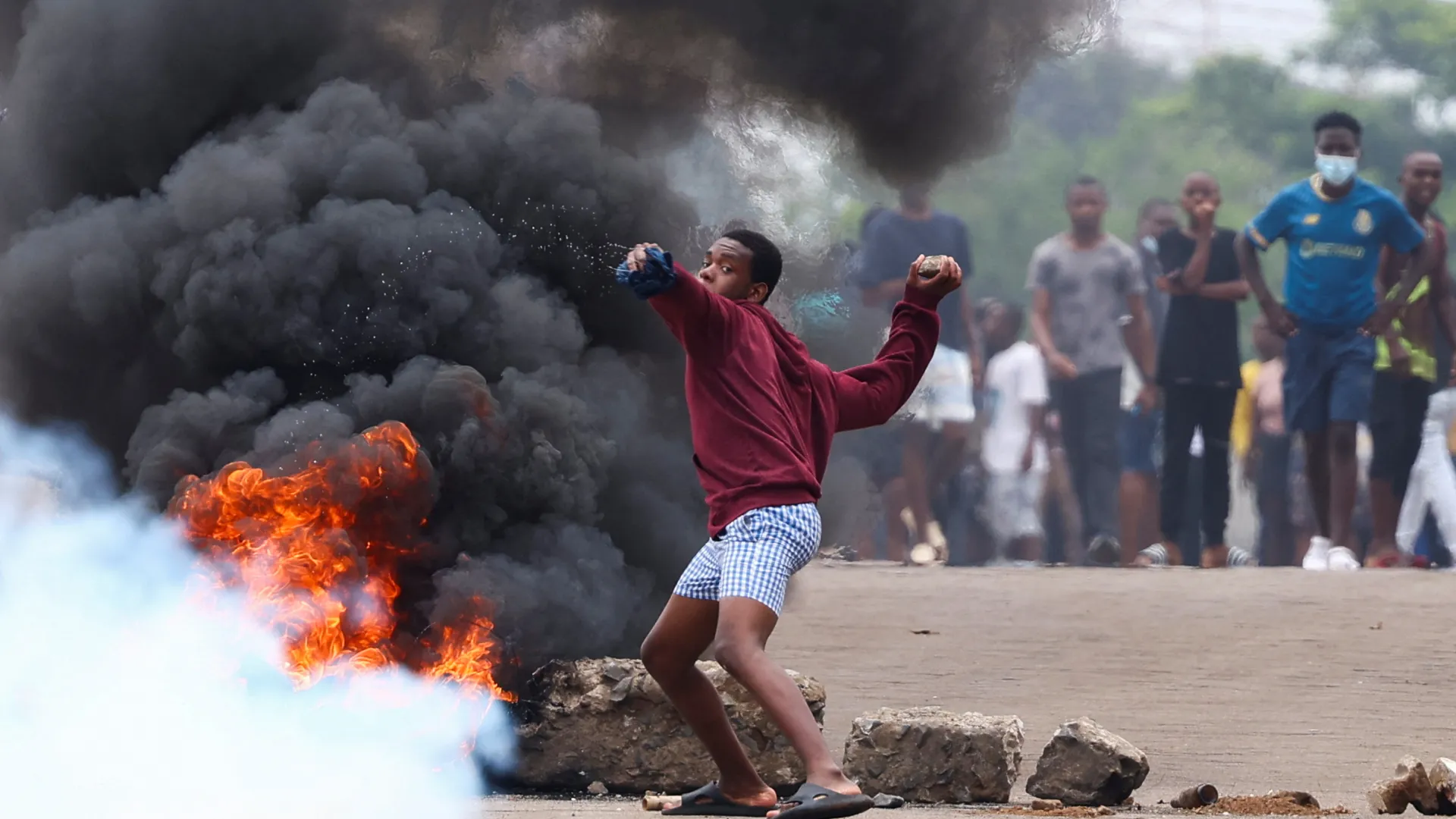Mozambique has been gripped by turmoil since the contested presidential election on October 9, where accusations of fraud and widespread protests have escalated into violent confrontations with security forces.
Human Rights Watch has reported that at least 10 children have been killed and dozens more injured as authorities sought to suppress demonstrations.
These tragic events underscore the deep political tensions and human rights concerns in the southern African nation, raising alarm bells both domestically and internationally.
Background of the Election and Political Unrest
The roots of the current crisis lie in Mozambique’s long-standing political landscape. The ruling Front for the Liberation of Mozambique (Frelimo) party has maintained an unbroken grip on power since the country gained independence from Portugal in 1975.
Daniel Chapo’s victory in the October 9 presidential election was expected by many, but the opposition’s claims of widespread electoral fraud have fueled anger and frustration.
International observers, including a team from the European Union, criticized the election process, highlighting irregularities that cast doubt on the legitimacy of the results. These findings resonated with the opposition and civil society groups, who have long accused Frelimo of manipulating elections to maintain its dominance.
The violent protests that erupted following the announcement of Chapo’s victory on October 24 are seen as a culmination of years of political discontent and mistrust in the electoral system.
Read : Montepuez Ruby Mine in Mozambique Stormed After Fake Notice
The situation took a darker turn on October 18 when two senior opposition figures, including the lawyer for independent presidential candidate Venancio Mondlane, were assassinated in a late-night shooting.
The opposition has called this a political assassination, further inflaming tensions. Mondlane, fearing for his safety, has since left the country, but continues to call for protests through social media.
The Human Cost: Children Caught in the Crossfire
The most shocking aspect of the ongoing crisis is the impact on Mozambique’s children. According to Human Rights Watch, at least 10 children have been killed by security forces, and many more have been injured.
These deaths are not just numbers; they represent young lives cut short and families torn apart. The circumstances surrounding these killings highlight the excessive use of force by authorities, who have resorted to live ammunition to disperse crowds.
In Mozambique 🇲🇿 several people came out in large numbers to say no to fraudulent elections and demand for change in their country. Several people have been shot dead by the police with many injured. pic.twitter.com/p6LesVcnoc
— Typical African (@Joe__Bassey) November 6, 2024
The targeting of minors extends beyond physical harm. Hundreds of children have been detained, some held for days in violation of international laws that protect the rights of minors. Reports indicate that many of these children were swept up in mass arrests, accused of participating in protests or being in the wrong place at the wrong time.
The Mozambique Bar Association has worked to secure the release of over 2,700 detainees, many of whom are teenagers. However, the trauma of these experiences is likely to leave lasting scars on the young generation.
Schools and businesses have been forced to close due to the unrest, disrupting education and daily life. Families are keeping their children at home out of fear, adding to the sense of insecurity that has gripped the nation. The deployment of the army to maintain order has only heightened tensions, with many fearing further violence.
International Condemnation and the Path Forward
The international community has responded with concern and condemnation. Human rights organizations have called for accountability, urging the Mozambican government to investigate the killings and hold those responsible to account.
The use of live ammunition against protesters, especially children, has been widely condemned as a violation of human rights and international norms.
However, the path forward remains uncertain. The Frelimo government faces a significant challenge in restoring public trust and addressing the grievances that have fueled the protests.

Transparency in investigating the election results and the killings is essential, but so far, the authorities have been reluctant to provide detailed information. The opposition, meanwhile, continues to call for justice and reforms, but their leadership is fractured, and many fear further reprisals.
For Mozambique to move forward, a comprehensive approach is needed—one that addresses not only the immediate crisis but also the underlying issues of political corruption, electoral integrity, and human rights abuses.
International observers and human rights organizations can play a crucial role in supporting this process, but ultimately, the solution must come from within. The Mozambican people, especially the younger generation, deserve a future where their voices are heard and their rights are respected.
The tragic deaths of 10 children in the ongoing protests are a stark reminder of the human cost of political conflict. These young lives should serve as a call to action for both the Mozambican government and the international community to address the root causes of the crisis and work towards a more just and peaceful future.

